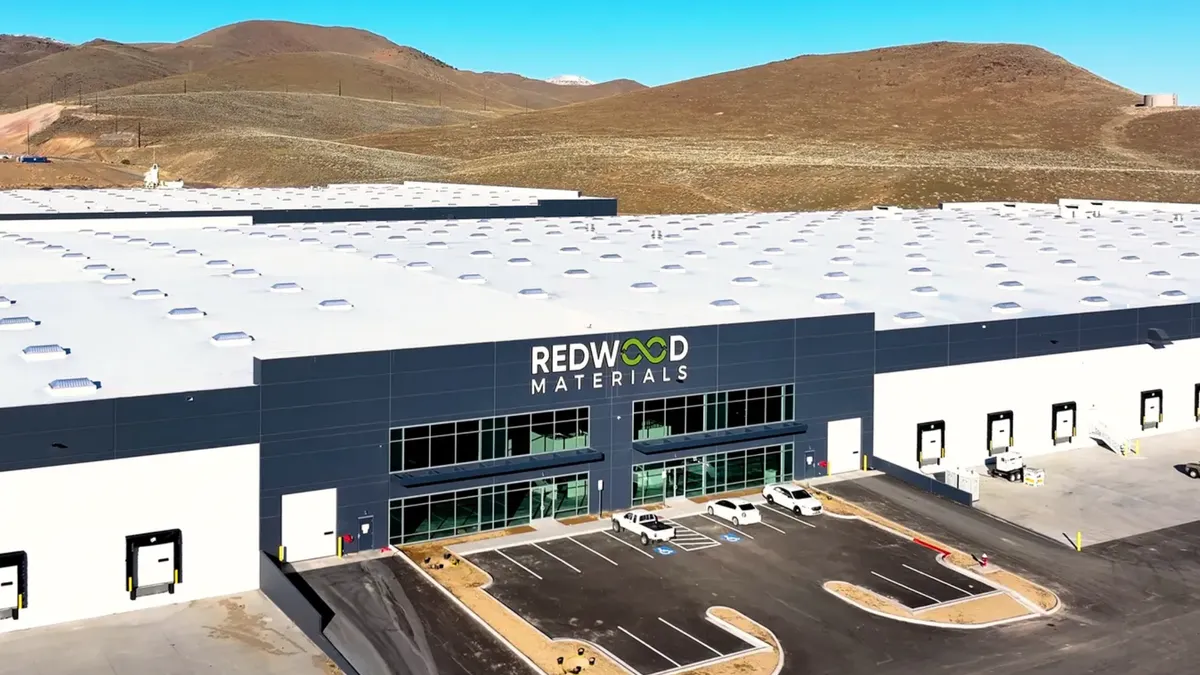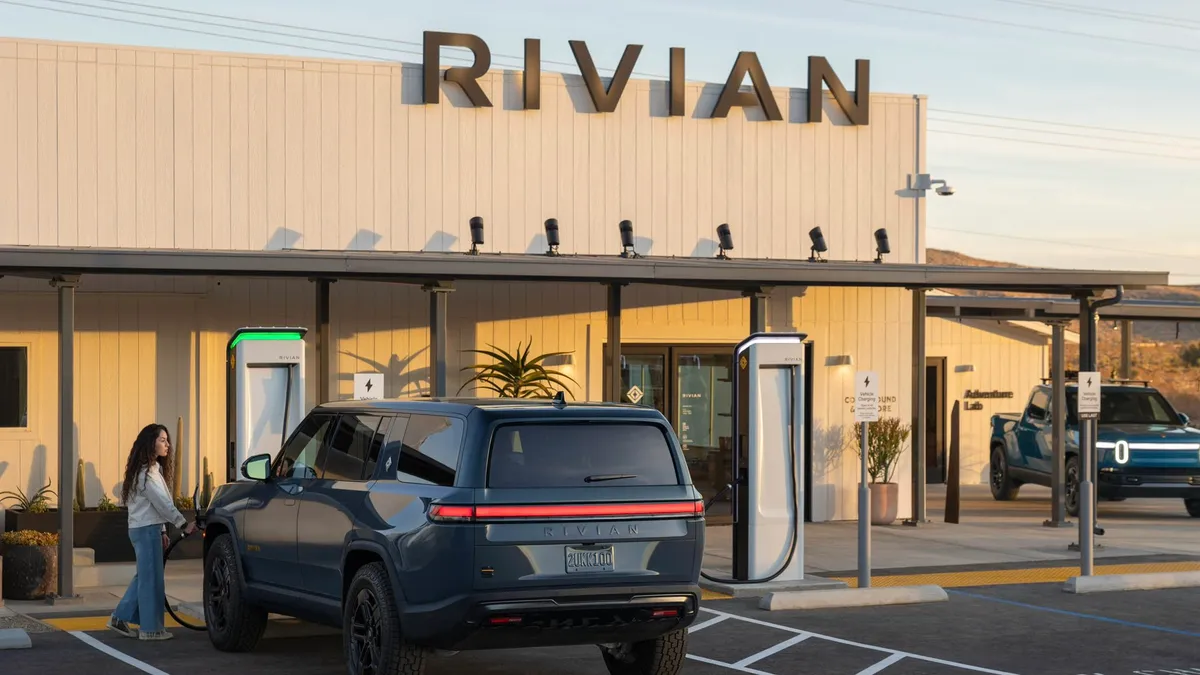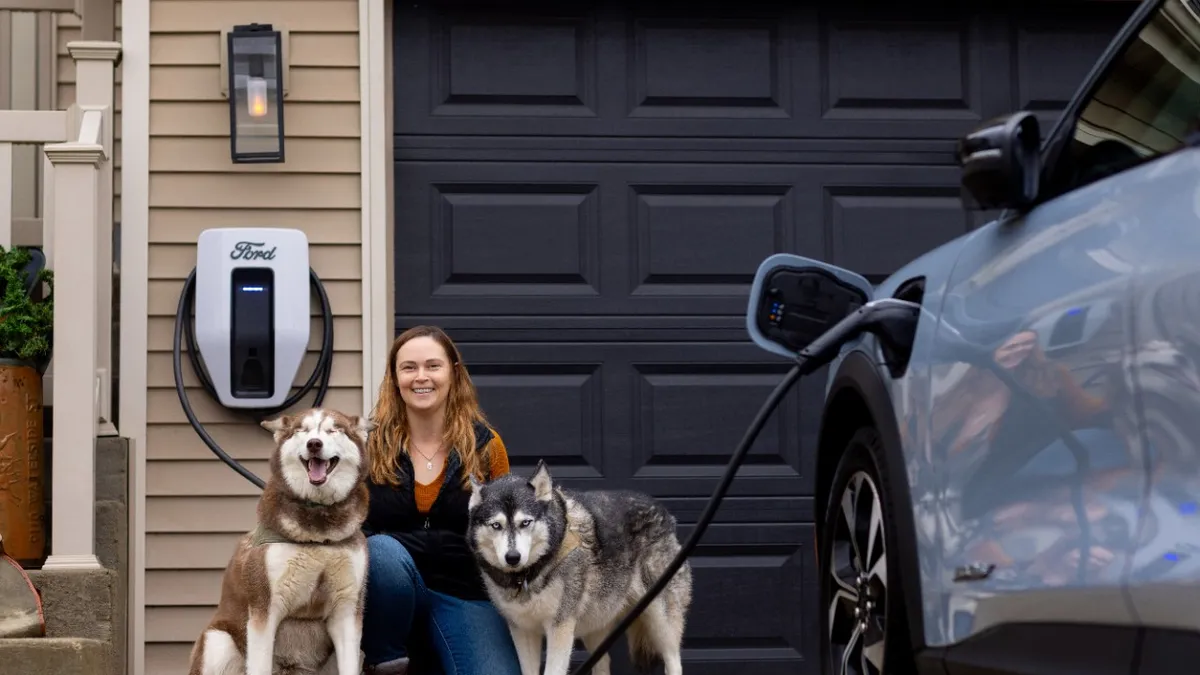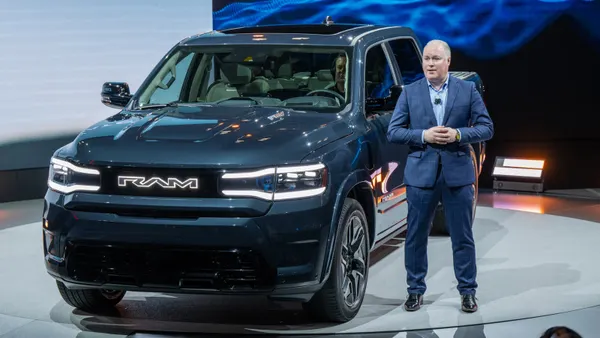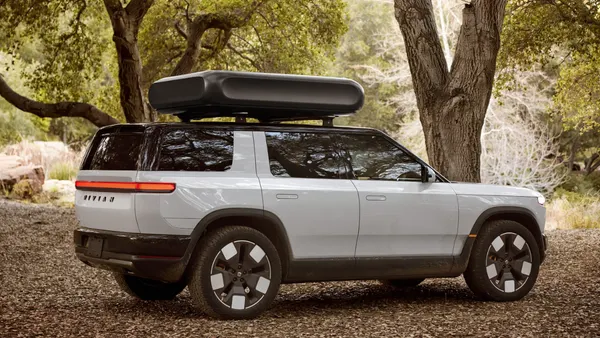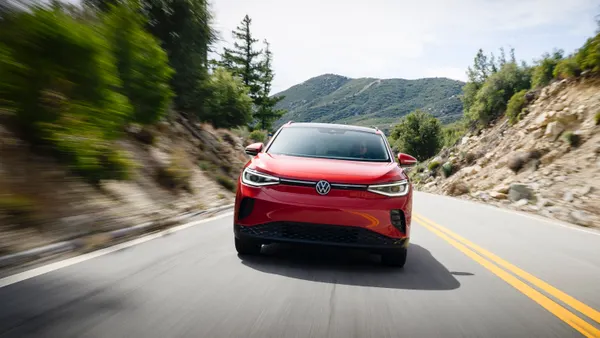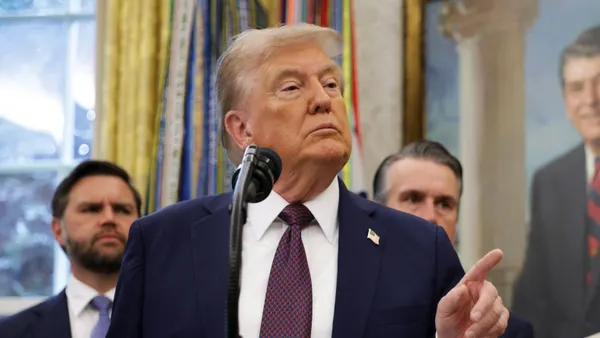Dive Brief:
- General Motors and battery recycler Redwood Materials have signed a non-binding memorandum of understanding to accelerate the deployment of stationary energy storage systems built using both new modules and second-life batteries from the automaker’s electric vehicles, according to a July 16 press release.
- The plans are part of a new business unit launched by Redwood Materials in June named Redwood Energy that’s focused on assembling and deploying low-cost stationary energy-storage systems to help meet growing power demands of AI data centers and other applications.
- “Electricity demand is climbing, and it’s only going to accelerate,” Kurt Kelty, VP of batteries, propulsion, and sustainability at GM, said in the release. “To meet that challenge, the U.S. needs energy storage solutions that can be deployed quickly, economically, and made right here at home.”
Dive Insight:
Redwood Materials plans to establish a domestic supply chain to manufacture batteries to support energy storage applications via its Redwood Energy unit.
The company currently repurposes around 20 gigawatt hours of batteries annually, which is the equivalent of 250,000 EVs or roughly 90% of all lithium-ion batteries and battery materials currently recycled in North America, according to its website.
GM is already providing the battery recycling company with used batteries to help power what Redwood calls “the largest second-life battery development in the world and the largest microgrid in North America” at an installation in Sparks, Nevada, per the release. The electricity produced by the microgrid is being used by AI infrastructure company Crusoe.
“Electricity demand is accelerating at an unprecedented pace, driven by AI and the rapid electrification of everything from transportation to industry,” said JB Straubel, founder and CEO of Redwood Materials, in the release. “Both GM’s second-life EV batteries and new batteries can be deployed in Redwood’s energy storage systems, delivering fast, flexible power solutions and strengthening America’s energy and manufacturing independence.”
According to GM’s press release, U.S. electricity demand is being driven by the increasing power demands of AI data centers. By 2028, the percentage of the national grid’s electricity used by data centers is expected to triple from 4.4% to around 12%. This creates the need for additional energy storage units to help offset power outages and reinforce the grid during peak demand or when power delivery is limited.
In May 2024, Redwood Materials announced it would recycle cathode anode materials and production scrap from GM’s Ultium Cells battery joint venture plants in Warren, Ohio, and Spring Hill, Tennessee. The recovered materials will be processed and used to produce new batteries.
In addition to GM, Redwood Materials is working with Toyota, Ford Motor Co. and Volvo Cars on battery recycling initiatives in the U.S. The efforts are intended to make EV batteries more sustainable, as well as lessen reliance on imported critical raw materials, most of which are currently sourced from processors and refiners in China.
Last September, Redwood Materials and BMW announced plans to recycle second-life batteries from the automaker’s network of nearly 700 locations in the U.S., including dealerships and distribution centers to recover critical minerals, including nickel, cobalt, lithium and copper. Redwood aims to return 95% to 98% of these critical minerals back to the domestic battery supply chain.
Redwood Materials was founded in 2017 by Straubel. He was the co-founder of Tesla and the company’s former CTO. Straubel was nominated to Tesla’s board of directors in April 2023.
In February 2023, Redwood Materials received a $2 billion loan commitment from the Department of Energy to expand battery materials recycling to support the growing EV market in the U.S.
GM and Redwood Materials expect to announce more details about their planned collaboration later this year, according to the release.



